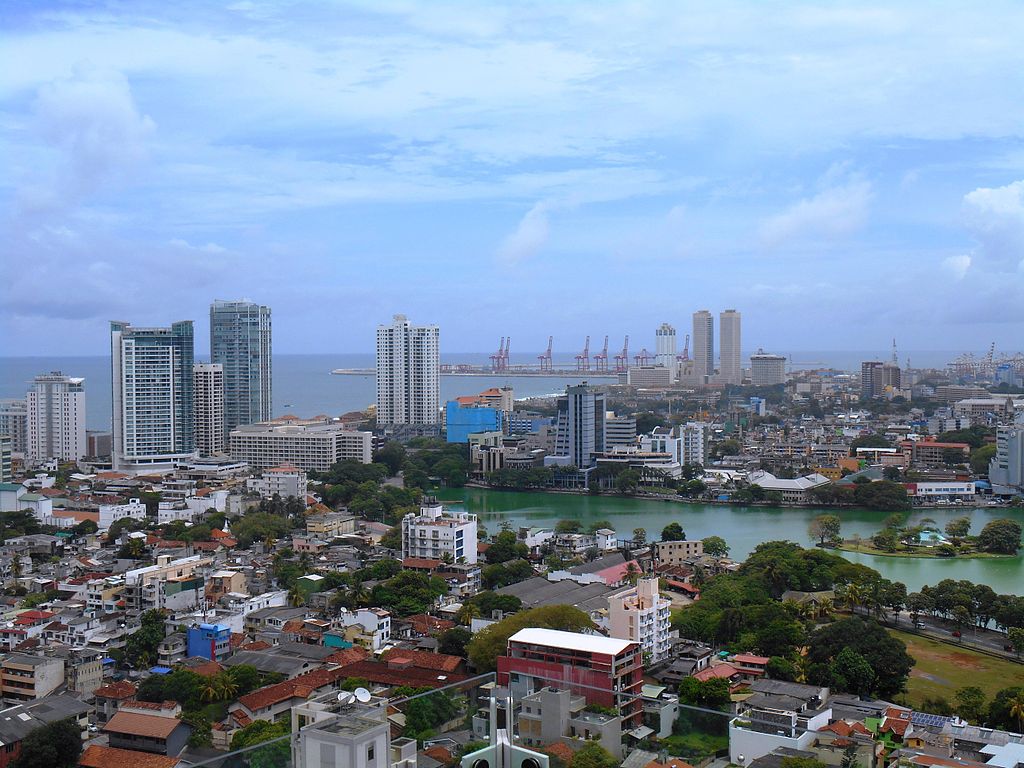
Cambridge, Oxford & Moratuwa universities and industry join hands to introduce fibre optic monitoring technology to Sri Lanka
I am privileged to have a team of renowned experts in the world in all the required areas to support this initiative
Dr Kasun Kariyawasam
A Gates Cambridge Alumnus has formed a partnership between his university, Cambridge and Oxford universities and a local engineering company to introduce a cutting-edge technology to Sri Lanka.
A team of researchers and industry experts from the University of Moratuwa in Sri Lanka, the Cambridge Centre for Smart Infrastructure and Construction (CSIC), the University of Oxford and Access Engineering PLC in Sri Lanka have partnered for an ambitious project to introduce fibre optic infrastructure monitoring technology to Sri Lanka.
The project will be led by Gates Cambridge alumnus, Dr Kasun Kariyawasam, under the guidance of Professor Malik Ranasinghe, former Vice-chancellor of University of Moratuwa.
Professor Ranasinghe stated: “Fibre optic monitoring has extensive applications in the Sri Lankan construction industry and we are delighted to collaborate with an excellent group of researchers to introduce this technology to Sri Lanka with financial support from Access Engineering PLC for the first phase”.
The research project aims to introduce the fibre optic monitoring technology to Sri Lanka and use the unique climatic, geotechnical and material conditions present to further study this technology in the areas of integrity testing of piles, axial shortening of multi-storey buildings, scour monitoring of bridges and damage detection of historic structures.
Dr Jennifer Schooling, Director of CSIC, said: “CSIC is delighted to be part of this important project in Sri Lanka. Our researchers have extensive expertise in the application of Fibre Optic Monitoring in the field. CSIC has been working with our partners to progress the smart infrastructure agenda for the past 10 years and we continue to collaborate to achieve zero carbon, resource-efficient and resilient infrastructure that enables people and the planet to flourish.”
Dr Cedric Kechavarzi from CSIC, a leading expert in fibre optic monitoring, added: “This cutting edge technology uses fibre optic cables embedded inside or attached onto civil works, which, like a series of nerves, inform on the health and condition of infrastructure assets. This is an excellent initiative because, at a time when we are faced with the seemingly contradictory needs for a more efficient yet future proof and resilient civil infrastructure, quality data and information can facilitate improved design and better productivity but also enhance safety throughout the lifecycle of assets.”
Professor Sinan Acikgoz from the University of Oxford said the project would help “to achieve world-class research impacts and increase the resilience of urban societies around the world” while Professor Chintha Jayasinghe, Head of the Department of Civil Engineering, University of Moratuwa, stated that the initiative would “make a significant contribution to the state of the art technology with special focus on smart construction and enhanced resilience in Sri Lanka”. Access Engineering PLC Executive Vice Chairman Christopher Joshua said that “while its application is far-reaching into several fields of civil engineering, it will no doubt uplift the local construction industry”.
Kasun [2016] was a Gates Cambridge Scholar at the University of Cambridge from 2016 to 2020 and is currently a Lecturer attached to the Department of Civil Engineering at the University of Moratuwa. He stated: “This project aims to apply fibre optic monitoring technology in Sri Lanka to a wide variety of areas. I am privileged to have a team of renowned experts in the world in all the required areas to support this initiative. I must thank Gates Cambridge Trust for the opportunity provided during my time as a scholar to gain the required knowledge and form networks which now have provided chances to make a significant contribution to society.”
*Photo of Colombo by Anuradha Dullewe Wijeyeratne, courtesy of Wikimedia commons.












